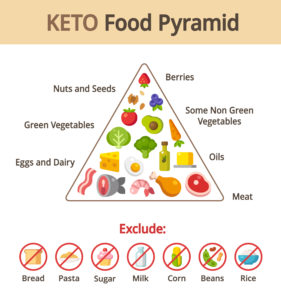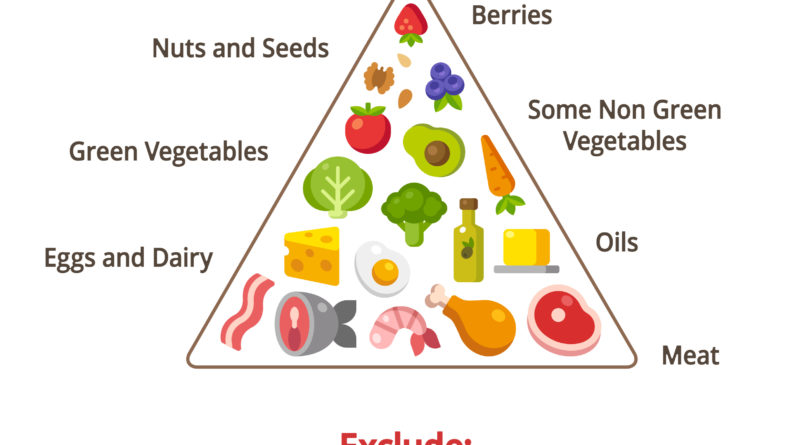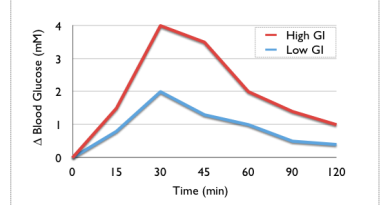How Ketogenic Diet May Help in Managing Diabetes Effectively
Number of people suffering from diabetes is increasing all over the world. Along with lifestyle changes, other kinds of adjustments are also being recommended to keep diabetes under control. The diet definitely needs special mention in this regard. Special diet recommendations are created for patients so that they eat things which help in keeping blood sugar levels under control. Lets look at Ketogenic diet to see if it helps diabetes.
What is Ketogenic Diet Actually?
Ketogenic diet is a low-carb, high-fat diet through which the body changes the ways in which energy is stored and used in the body. Generally the main target of this diet is to reduce the weight of an individual.
When a ketogenic diet is started, sugar is not converted into energy in the body. Rather the body converts fat into energy and reduces weight significantly. It is interesting to note that the main purpose of creating the ketogenic diet was for treatment of epilepsy, but the eating patterns of this diet showed great results for type 2 diabetes as well. Blood sugar levels show great improvement with ketogenic diet, and patients who were on insulin no longer needed insulin to control their blood sugars. Before starting the ketogenic diet, it is recommended to seek consultation from the physician as there might be some side effects for some individuals.
How Does Ketogenic Diet Work?
When a person is on the ketogenic diet, low, but healthy blood sugar levels are maintained in the body. Due to this, the body breaks down fat into a kind of fuel source, popularly known as ketones. The process in which the body burns or breaks down fat is known as ketosis, not to be confused with diabetic ketoacidosis which is a dangerous medical condition where blood glucose is generally more than 250 mg/dL and your blood becomes more acidic.
There are many people who need to take insulin on a regular basis to keep blood sugar levels under control. With a ketogenic diet, the amount of insulin required, will be reduced considerably. With excess body fat burning, body weight is also reduced considerably.
The role of ‘high-fat’ foods in ketogenic diet
If you take a general look, you will find that majority of people suffering from type 2 diabetes are overweight. In such a situation, consuming a high-fat, low carb diet might seem counter intuitive to many. The main aim of the ketogenic diet is to make the body use as much fat for energy production as possible. Instead of using glucose or carbohydrates, fat stores are used for energy production in ketogenic diet. This however does not mean that one can consume as much saturated fats as one wants. Various kinds of heart healthy fats are also available, which help in sustaining and maintaining overall good health and well-being. Some of the most well-known items, which are included in ketogenic diet include:
- Cottage cheese
- Eggs
- Avocado
- Fish such as salmon
- Various kinds of nuts and seeds
- Olives and olive oil
- Nut butters and nuts etc

Benefits of Ketogenic Diet for Diabetes
Research has found that ketogenic diet has proved to be really helpful for patients suffering from type-2 diabetes. It might be tough initially to follow such a diet, but the benefits which are obtained are just great. Management of diabetes treatment plan becomes easier with this diet:
- Helps in eliminating food items which can affect diabetes blood sugar control
Unhealthy high carb foods should be avoided completely by people suffering from diabetes. With the help of ketogenic diet, it is possible to eliminate such food items from your diet so that issues of insulin resistance and abnormal blood sugar levels are not seen. It is recommended to eliminate grain based foods as well as sugars from the diet so that diabetes control plan remains effective in the best manner.
- Helps in reversing insulin resistance right at the root of type 2 diabetes
Insulin resistance is one of the main problems in diabetic patients. This means that insulin injections don’t work well on the patient and hence blood sugar levels cannot be controlled easily. Along with this problem, another problem associated with diabetics is metabolic syndrome. Both these issues can be tackled successfully with a ketogenic diet. Low carb intake helps in reducing blood sugar levels significantly. As a result, the need of insulin also decreases in the body. As the level of insulin drops in the body, insulin resistance severity gets much better.
- Restricts intake of dietary carbs and betters insulin levels and blood sugar control
With ketogenic diet, dietary carb intake is restricted and thus blood sugar levels remain under control. Moreover, metabolic disorders can also be controlled with this diet. The studies have shown that with the ketogenic diet, it is possible to maintain great heart and cardiovascular health. The good effects that are obtained from the diet can be maintained for a long time.
Careful Monitoring of Ketogenic Diet
There is no doubt about the fact that the ketogenic diet is very useful for keeping diabetes under control. But at the same time, it is important that there should be careful and constant monitoring for the patient, who is on a ketogenic diet. Since the primary energy source of the body gets changed from carbohydrates to fat, various kinds of side effects might be seen. Blood sugar levels and ketone levels must be checked in the body at regular intervals to ensure that they are not disturbed via the ketogenic diet. Talk to your doctor before you get on ketogenic diet. Blood sugar levels and ketone levels must be checked in the body at regular intervals to ensure that they are not disturbed via the ketogenic diet. Ketogenic diet is not recommended for pregnant women, children and people who are prone to have hypoglycemia.
- Adolescents Living With Diabetes - August 6, 2022
- Diabetes Insipidus Symptoms, Causes, & Prevention - July 26, 2022
- Insulin Shortage May Affect Almost Half of the Diabetics by 2030 - November 24, 2018




